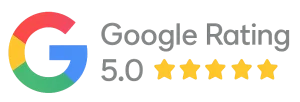Many solo practitioners and small practices often wonder: Can I credential myself? The answer is yes—but only if you understand the key considerations. Credentialing is the process by which payers evaluate a provider’s qualifications for patient care and reimbursement.
This blog at Credex Healthcare discusses the rise of DIY credentialing, its benefits and drawbacks, and situations where outsourcing might be preferable.
Understanding the Credentialing Process
Credentialing is a rigorous evaluation. Payers—such as Medicare, Medicaid, and commercial insurers like Aetna or Blue Cross Blue Shield—verify that providers are appropriately licensed, trained, and qualified. This includes reviewing education, employment history, licensure, and more, as part of the enrollment process.
It starts by registering your National Provider Identifier (NPI) and creating a CAQH ProView profile. Then, you must go through each insurance credentialing process, submit the required documents, and pass a background check. Once approved, you are ready to begin offering your services through a billing system.
DIY Credentialing: A Step-by-Step Journey
If you choose to credential yourself, begin by registering for your NPI number via the National Plan and Provider Enumeration System (NPPES). Next, confirm that your professional license is current and valid.
Afterward, sign up on CAQH ProView, where your credentials can be stored for easy review by payers. Once that’s done, apply to each insurance company individually. This process includes filling out applications, submitting materials like your DEA registration and malpractice insurance, and signing contracts.
The majority of insurance companies also consider examination of work experience and education. They can also make a call to people you have worked with or studied with before to confirm. This entire process may last as long as weeks and even months.
Pros and Cons of Doing Your Own Credentialing
Advantages of Self-Credentialing
Cost savings: You avoid paying for an external credentialing service.
- Full control: You manage submission timelines, documentation, and insurance communications directly.
Insight into the process: You learn each payer’s requirements, improving your ability to troubleshoot and expedite future credentialing.
Challenges of Solo Credentialing
- Time-intensive: Completing and tracking multiple payer applications, document submissions, and follow-ups demands significant effort.
- Risk of simple errors: Forgetting to re-attest CAQH every 120 days, submitting incomplete work history, or overlooking required documents (e.g., W-9) can invalidate the process.
- Potential financial impact: Credentialing delays may prevent provider access to in-network billing, delaying revenue and patient care.
Often ends in outsourcing: Many providers eventually engage credentialing professionals to finalize a stalled process.
Common Pitfalls and How to Avoid Them
The common mistake in DIY credentialing is leaving your CAQH setup for solo providers unauthenticated or incomplete. This can stop insurance companies from making progress. Also, don’t forget to bring all the necessary documents, like your license, malpractice policy, or W-9.
Another issue that many of the providers overlook is re-attestation of the CAQH after every 120 days. Otherwise, without performing this step, your credentialing can be denied or delayed. To eliminate such problems, remember to have a checklist and calendar reminders.
Cost and Time: DIY vs Professional Services
Credentialing yourself is a service that does not cost money. But time may be a high price to pay. Credentialing takes an average of 60 to 120 days. Any inability to work with that timeline can make that time frame even longer when you have not been educated in the process.
Credentialing firms generally charge from $200 to $250 per payer or a flat fee, depending on the level of full service. Although this is an expense, they have a habit of accelerating and decreasing errors.. They also monitor credentialing and update everything.
When Outsourcing Makes More Sense
Outsourcing should be a more appropriate option when you plan to open a new practice and you need to treat patients immediately. It also comes in handy in those times when you do not need to take time learning every one of the payer’s procedures or need to avoid regularly following up.
Credentialing specialists are aware of how to handle every insurer, even Medicare and state Medicaid insurance, and can assist you in enrolling quickly.
Another reason why providers prefer outsourcing is when they are rejected or lose money as a result of denied claims. Credentialing services can indeed minimize such risks by ensuring that your applications are complete and accurate.
Final Thoughts: Should You Do It Yourself?
Indeed, you can perform your own credentialing, but this requires time, concentration, and structure. In case you are an individual provider who has some spare time, then self-credentialing could help. You only need to be ready to learn the process, meet deadlines, and make follow-ups on each payer.
But if you need immediate results and want to reduce errors while having more time to see your patients, you might consider hiring a credentialing company, as it could be beneficial. Credentialing is unavoidable, whether you choose to work alone or seek assistance from someone else.
FAQs
Is self-credentialing legal?
Yes, in some legal terms, healthcare providers are allowed to carry out their credentialing. It has no rule that one has to recruit a company to do the same.
Am I going to have some money saved?
You will not pay any service fee, but you might consume a lot of time. Mistakes and delays may be costly to you because you can fail to charge insurance.
What is the tough road in DIY credentialing?
One of the most difficult tasks is maintaining and updating your CAQH profile and completing it. It can also be challenging to follow a unique procedure for each payer.
Can I change to a credentialing company in the future?
Yes, several providers initiate contact on their own before contracting with a company. You should be aware that credentialing services may assume this, even if you have already started processing your applications.
Is it longer to do it myself?
Often, yes. Credentialing companies know the most effective ways to speed up approval.








